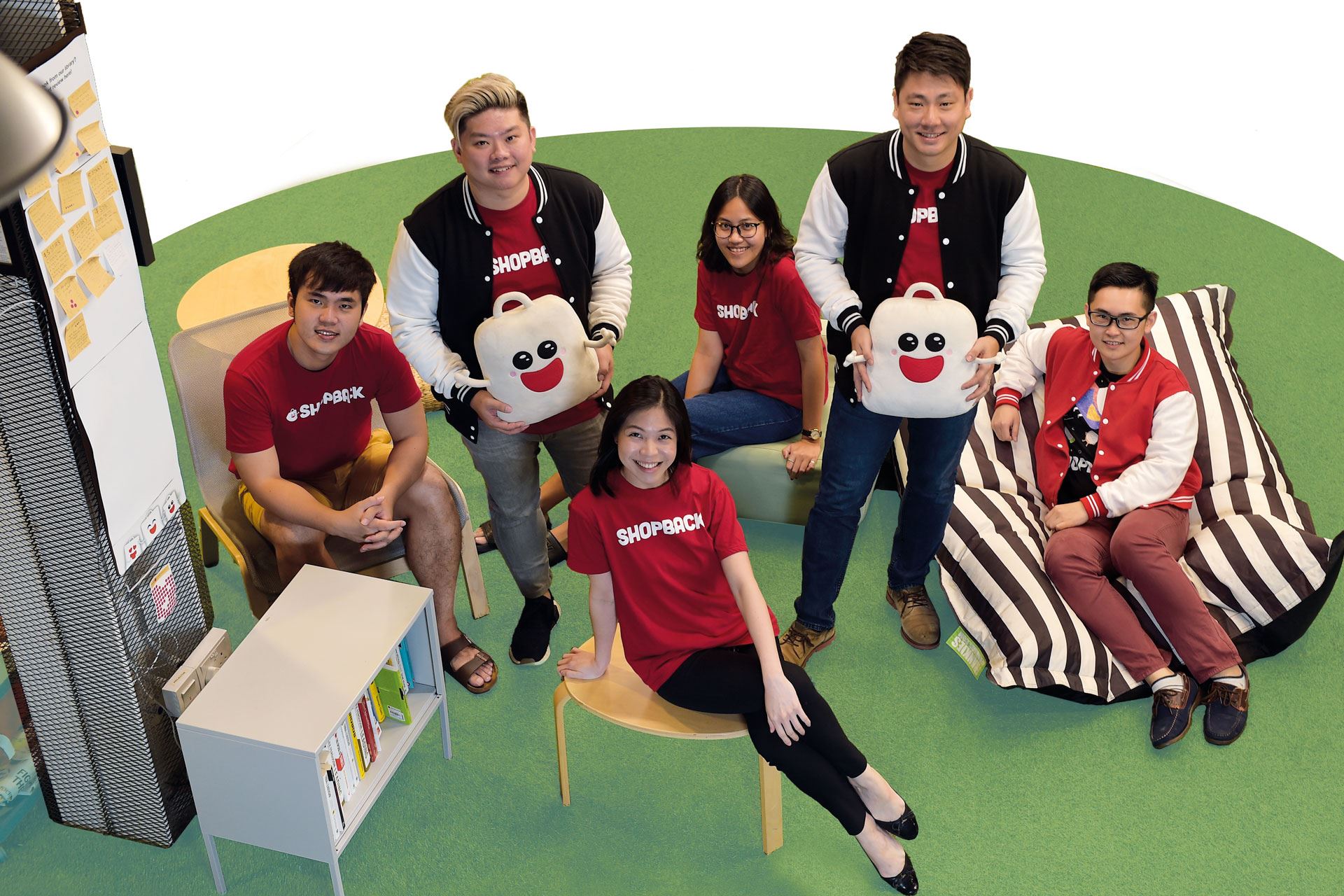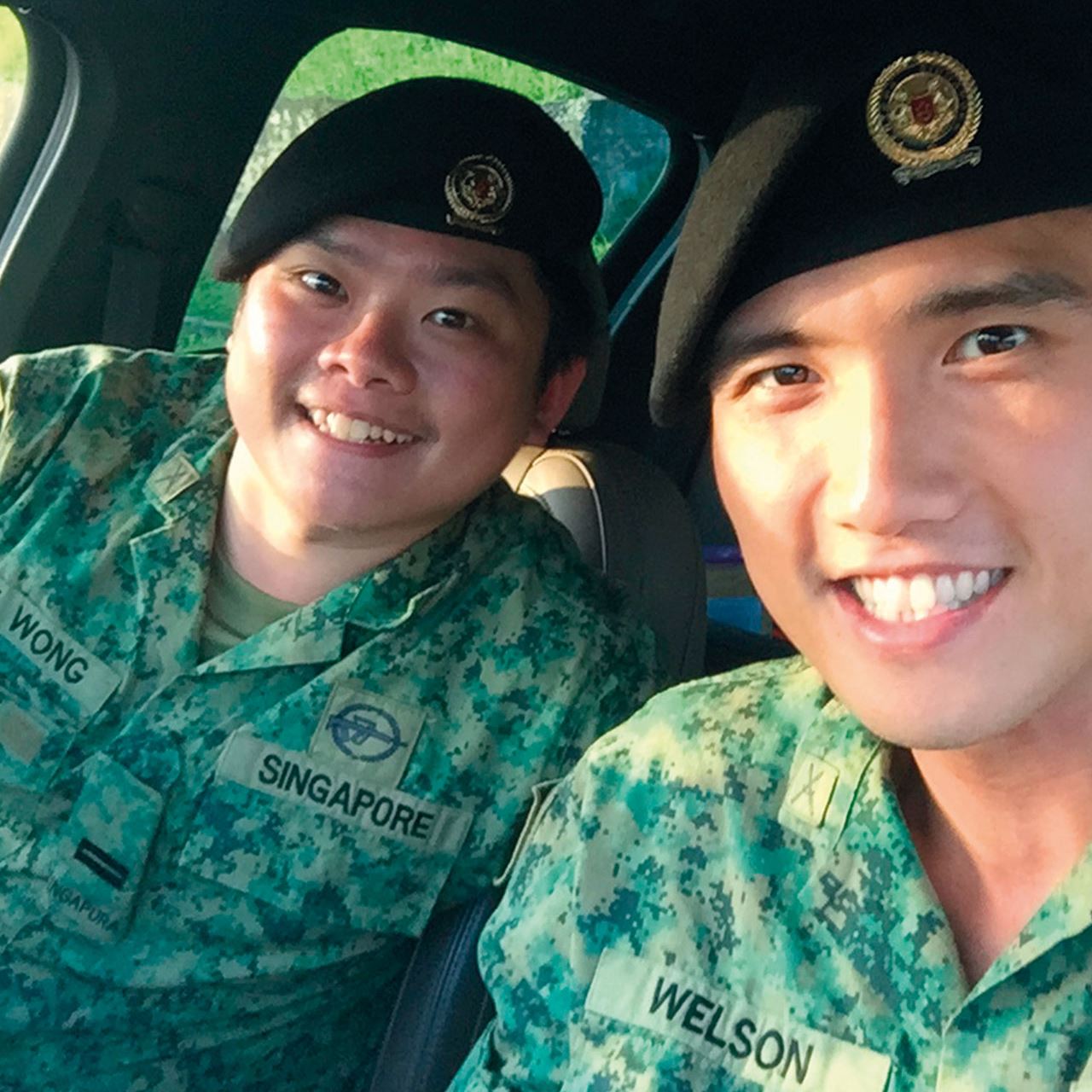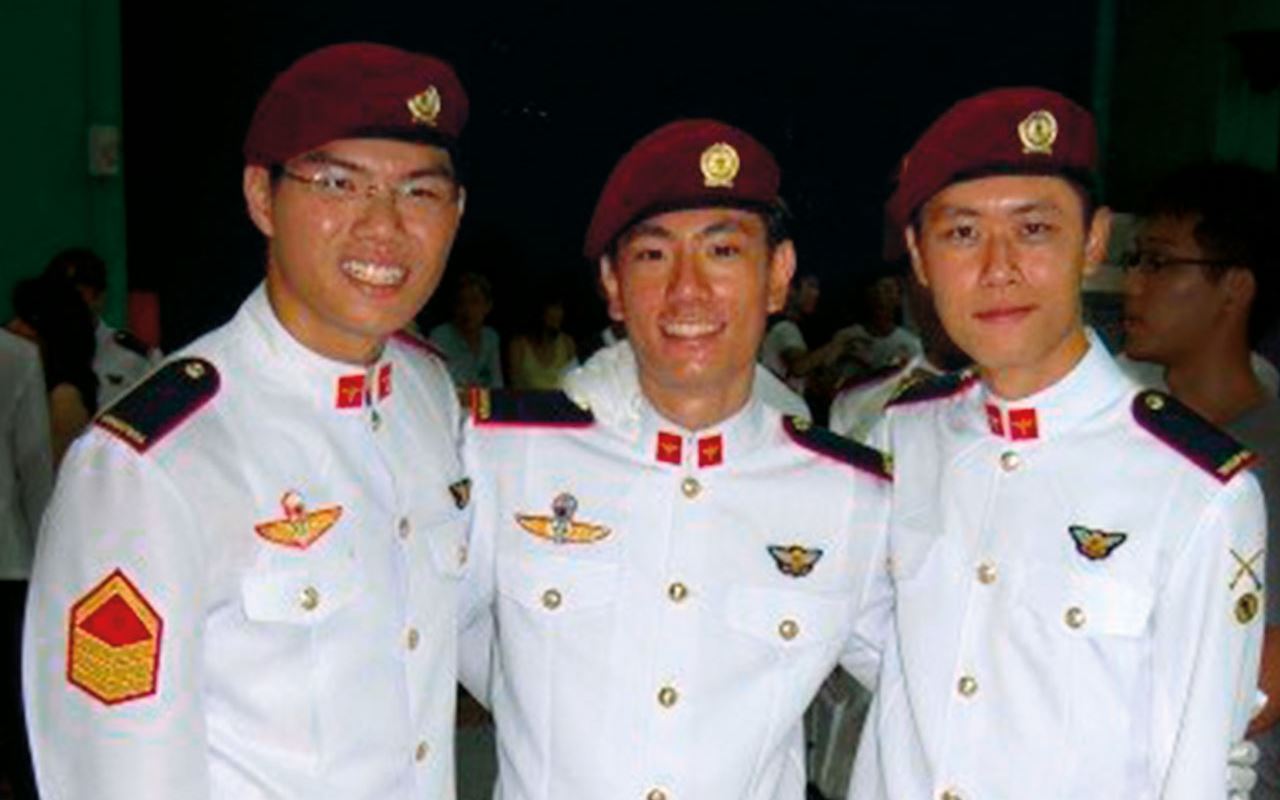PEOPLE
RETURNS ON A DREAM
31 Aug 2018
Have a great new business idea but don't know where to begin? These young local entrepreneurs tell us what it takes.


Have a great new business idea but don't know where to begin? These young local entrepreneurs tell us what it takes.
One left a stable job at a statutory board to pursue his dream of running his own company. The other watched the start-up he founded close down, but is now running a successful team with the lessons he learnt.
Meet ShopBack's Corporal First Class (CFC) (NS) Joel Leong and Lieutenant (LTA) (NS) Vincent Wong.
The local e-commerce company, which offers cashback to online shoppers, was founded by CFC (NS) Leong, 31, and five others in 2014. LTA (NS) Wong, also 31, heads the Singapore office.
Today, ShopBack has expanded to almost all of Southeast Asia as well as Taiwan and Australia, and works with more than 1,500 local and regional merchants, awarding over US$25 million ($34.1 million) in cashback to customers to date.
What made you take that leap of faith to start ShopBack?
J: After working at the Economic Development Board, I moved to Zalora (a fashion-focused e-commerce site), where I learnt about start-ups. (What helped) the co-founders and me to step out on our own was having a team. I didn't do this alone; I did it with my co-founders, and they gave me the confidence to succeed.
What's it like working in a start-up?
V: I worked in another start-up, Groupon, and I also started my own business (Goodstuff.sg), before joining ShopBack almost two years ago. (Working in a start-up) is interesting because you have no precedents to follow or predecessors to ask. You have to create everything from scratch. But I enjoy the challenge.
What's a day in life at ShopBack?
V: Every morning we run scrums (gathering of team members) to go through our tasks for the day. This is to remind everyone that every day, you should be making progress.
J: At 9am, we refresh the numbers from the day before to give us a sense of what went wrong yesterday, and how we can address the problem.
V: We also find time to interact with the team. It's important that everybody is on the same page. I like to (hire) people who use ShopBack, because (to) make the product more attractive, you have to understand it from the consumer's point of view. So we sort of hire our own customers!
What's the key to a start-up's success?
J: A company's business model can get outdated, but what makes you different is how you adapt and fight the challenges. And this has to be done by the people.
V: If you can't bring in people with the same vision and better capabilities than you, it's never going to work out.
That was the mistake I made back then in my own start-up. I was fixated on the business model, but what I needed were people who believed in it and had the skill sets to run the company better. It was a big lesson.
What National Service (NS) memories do you hold dear?
V: Mine was very much an "ah boy to man" journey. As a recruit, I behaved like a boy. In Officer Cadet School, I was a boy trying to be a man. Then I went back to Basic Military Training Centre as an instructor and company 2nd In-Charge — to help others turn from boys to men!
I learnt that there are no lousy followers, only lousy leaders. People come in, wanting to believe in you, and it's on you to take care of them. That is a mantra I live by.
J: The eye-opener for me as a Commando in 1st Commando Battalion was that (whatever tough training) our trainers set out for us to do, they (also) did it too — that was leadership by example. I also learnt to push myself beyond the expected — a lesson that is helpful for start-ups too.
When we create a new product, we always believe it will (succeed) and try not to lower the target. The goal is to stretch ourselves and hit the targets we never thought we could. That's what helps us grow.
What advice do you have for aspiring entrepreneurs?
J: Have the humility to learn from others. Don't ever think that you are a genius, because most of the time that's not going to be the case! (laughs).
V: Work a couple of years first. It's a paid lesson where you can observe how things are done.
It can be a structured multinational company or a new start-up. And be ready to be wrong, so that it can be better the next time around.
ALSO READ IN PEOPLE

When two hearts set sail together
13 Feb 2026
Naval engineers ME2 Gary Lim and ME2 Audrey Ho share how they navigate love, military service, and (soon) parenthood.

I’ve always got your back
11 Feb 2026
She’s an Army officer, and he’s the (NS)man supporting her dreams. CPT Koh Xinci and 3SG (NS) Nitro Chan share their love story with us – including their unique wedding!

He’s an NSF Commando & medal-winning fencer
28 Jan 2026
His team won gold at the SEA Games 2025, and he hopes to represent Singapore in more competitions to come. Meet fencer CPL Samuel Elijah Robson, who is serving as a Commando during his full-time NS.




